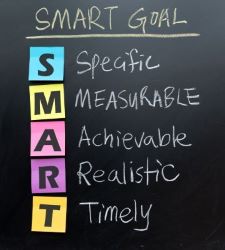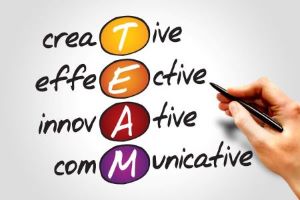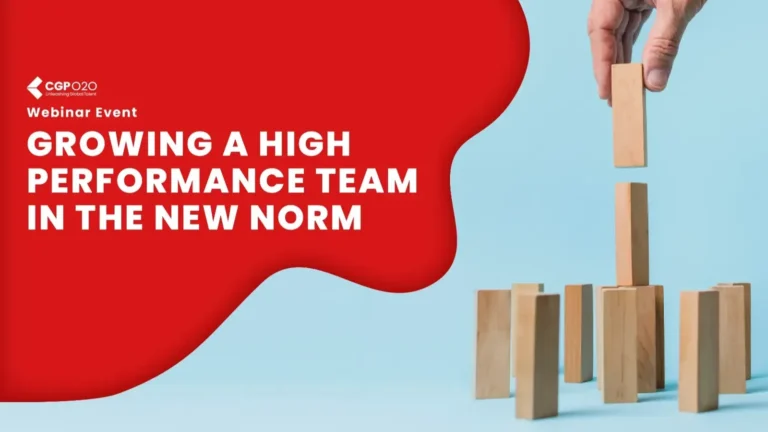The world is changing, and so is the way we work. Trends like, artificial intelligence and automation are the stimuli that have spurred a transformation in the work landscape.
When you think of the future of work, what do you see? Robots in place of human resources? Office setups are entirely different from today, or the absence of physical offices due to adopting remote work?
While it is impossible to predict the future of work, it is visible that the employment landscape is changing rapidly. Therefore, there is a need for human resources to prepare themselves and adapt to the transition. Presently, the focus is placed on technology in the future of work discussions. However, other factors such as remote work, workplace diversity, and the gig economy also shape the future of work.
Looking ahead and preparing for the changing world of work can help you maintain a work-life balance.
So, let’s take a closer look at the tips to prepare you for it.
#1. Create a professional development plan
“Planning is bringing the future into the present so that you can do something about it now.”- Alexander Graham Bell.
Outline your goals and map the route you must take to achieve them. This will allow you to clearly understand your expectations & desires, assess your skills, determine your success route, focus on essential activities, and strategise accordingly.

Follow the SMART goals rule:
S– Specific
M– Measurable
A– Achievable
R– Relevant
T– Time-based
#2. Evaluate your skills
Most importantly, for quick adaptation to the future of work, don’t wait. Take control of your profile and strengthen it by working on the weak areas. To make it happen, you must evaluate your skills and identify the areas you lack. As a result, you will be in a better position to work on yourself and add to the skills bucket. Pay careful attention to the skills you lack for your industry, as that will help you choose the right training or mentorship program.
#3. Explore the redesigning of learning
The definition of a skilled candidate has changed and is no longer restricted to just micro-learning. Simply put, you must lean into macro-learning to level up and prepare yourself technically and professionally.
While micro-learning refers to learning small chunks of a larger topic, macro-learning is learning complex skills. Therefore, your professional development plan must include your macro-learning plans.
#4. Capitalise on next-gen technology
Changing times demand embracing new, disruptive technologies to prepare for the challenges. The candidates who will be counted among the top talent are the ones who are using technology to prepare for the future of work today. Stay updated on the latest technologies that are impacting the marketplace and leave no stone unturned in leveraging their potential.
#5. Tap into your passion and become an expert
Turn your passion into a profession, and work won’t feel like work. Present-day organisations are looking for candidates who are specialists, and the trend will stay forever. So explore your talent and areas of interest that you can take in the future workplace. In other words, plan to dig deep into your passions and take on a specialised role.

#6. Work on your emotional intelligence
A majority of people seek answers to the question: How can I prepare myself for the future of work?
Well! Apart from working on technical aspects, you must also work on skills that fall under emotional intelligence. And they are self-awareness, self-regulation, motivation, empathy, and social skills. Most importantly, you must strive to become a better human and a leader. The skills will get you closer to your team and help you collaborate with colleagues. Moreover, AI and automation can never outsmart the leadership skills a human possesses.
RELATED READ: The Importance of Emotional Intelligence in Leadership
Trends for the Future of Work
The current year and the years ahead are set to see the changed work landscape. Here, we mention the most vital trends you must foresee to handle workplace diversity and changing work environments.
-
-
Quiet hiring
-
Flexibility for frontline workers
-
Focus on skills rather than candidates’ prior experience
-
Focus on employee well-being
-
Continuous boosting of DEI efforts
-
RELATED READ: Diversity and Inclusion in HR: Current Trends and Future Directions
Final Comments
A competitive talent landscape and pressure to reduce costs pose challenges for organisations. Given that, companies must start putting the right people in the right place and turn the challenges into opportunities. In addition, enabling a workplace to foster innovation and be inclusive requires leaders to strategize how work gets done.
You must take charge of your future and upskill yourself to better prepare for the upcoming changes. Whether you are an accounts executive or a data scientist, one thing remains constant: continuous learning & development, reskilling, and upskilling bring job security.
FAQs
1. What are the future trends in the workplace?
The future trends in the workplace are:
-
-
Flexible hours/four-day working
-
Prioritisation of well-being
-
Focus on skills over jobs
-
The emphasis on soft skills
-
Increased diversity, equity, and inclusion (DEI) efforts
-
Use of AI and automation
-
Transformation of HR using tech and data
-
Focus on employee growth
-
2. What are your suggestions for the future of work at the organization?
The world of work is changing rapidly. Therefore, employers and employees need to be on their toes to adapt to the changing scenario. While employers must plan accordingly to manage the effects of the future of work, employees must focus on upskilling themselves to stay ahead of the curve.
3. How will the future of work change?
With the advent of AI and automation, the future of work is changing. However, various other trends will bring about a change in the future of work. For instance, hybrid flexibility will allow frontline workers flexibility, such as what they work, with whom they work, and how they work. Continuous support for DEI initiatives, sensitive offboarding, emphasis on continued employee growth, focus on skills over jobs, and prioritisation of employee well-being are among the other changes that will define the future of work.








